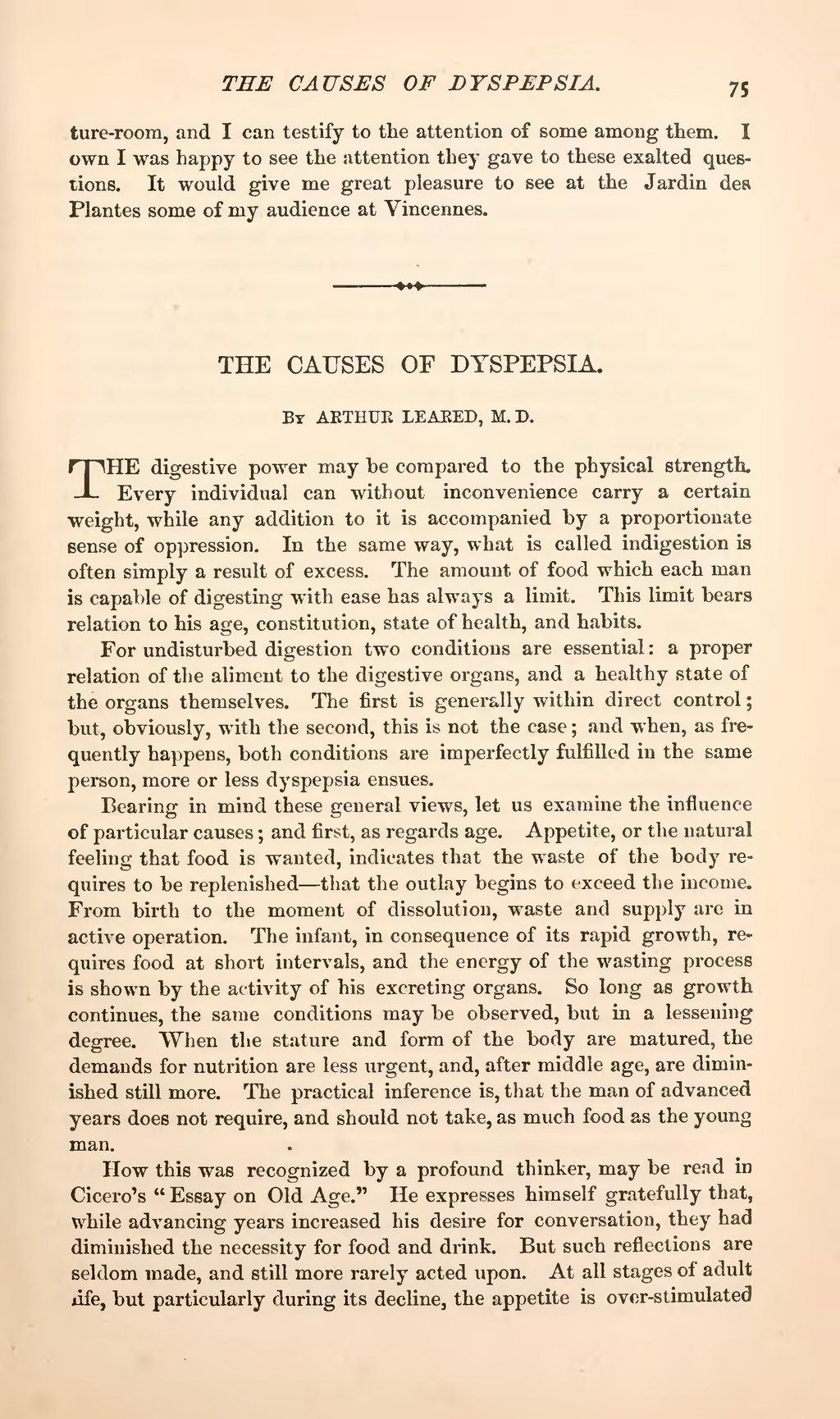ture-room, and I can testify to the attention of some among them. I own I was happy to see the attention they gave to these exalted questions. It would give me great pleasure to see at the Jardin des Plantes some of my audience at Vincennes.
| THE CAUSES OF DYSPEPSIA. |
By ARTHUR LEARED, M. D.
THE digestive power may be compared to the physical strength. Every individual can without inconvenience carry a certain weight, while any addition to it is accompanied by a proportionate sense of oppression. In the same way, what is called indigestion is often simply a result of excess. The amount of food which each man is capable of digesting with ease has always a limit. This limit bears relation to his age, constitution, state of health, and habits.
For undisturbed digestion two conditions are essential: a proper relation of the aliment to the digestive organs, and a healthy state of the organs themselves. The first is generally within direct control; but, obviously, with the second, this is not the case; and when, as frequently happens, both conditions are imperfectly fulfilled in the same person, more or less dyspepsia ensues.
Bearing in mind these general views, let us examine the influence of particular causes; and first, as regards age. Appetite, or the natural feeling that food is wanted, indicates that the waste of the body requires to be replenished—that the outlay begins to exceed the income. From birth to the moment of dissolution, waste and supply are in active operation. The infant, in consequence of its rapid growth, requires food at short intervals, and the energy of the wasting process is shown by the activity of his excreting organs. So long as growth continues, the same conditions may be observed, but in a lessening degree. When the stature and form of the body are matured, the demands for nutrition are less urgent, and, after middle age, are diminished still more. The practical inference is, that the man of advanced years does not require, and should not take, as much food as the young man.
How this was recognized by a profound thinker, may be read in Cicero's "Essay on Old Age." He expresses himself gratefully that, while advancing years increased his desire for conversation, they had diminished the necessity for food and drink. But such reflections are seldom made, and still more rarely acted upon. At all stages of adult life, but particularly during its decline, the appetite is over stimulated
